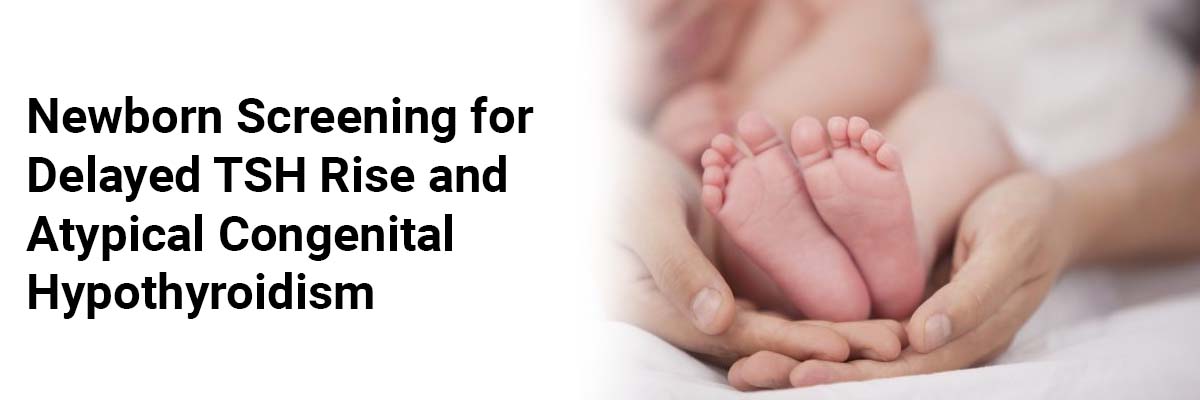
 IJCP Editorial Team
IJCP Editorial Team
Newborn Screening for Delayed TSH Rise and Atypical Congenital Hypothyroidism
A new
study investigated thyroid function abnormalities and associated conditions in
very preterm (VPT) or very low birth weight (VLBW) infants.
This
retrospective review was conducted on neonates admitted to UC Irvine Medical
Center from 2012-2020. All newborns underwent repeat thyroid screening at one
month of age. Those with abnormal thyroid-stimulating hormone (TSH) or free
thyroxine levels underwent further testing and endocrinology
consultation.
It was
noted that among the 430 infants included, 14.9% had elevated TSH, and 4.8% had
low free thyroxine. Risk factors for delayed TSH rise included being small for
gestational age, patent ductus arteriosus, and late-onset sepsis. Six infants
(1.4%) were diagnosed with atypical congenital hypothyroidism, requiring
treatment until discharge. However, none of these cases were identified by
newborn screening.
Percentile
cutoffs for TSH at one month of age were suggested to enhance screening
sensitivity. Repeat thyroid screening is recommended in VPT or VLBW infants to
detect atypical congenital hypothyroidism that may require intervention.
Thyroid dysfunction manifesting as low FT4 or elevated TSH at 1 month of life is relatively common in infants born very preterm and/or infants with VLBW. Those neonates, including some with atypical congenital hypothyroidism requiring thyroxine therapy, are at risk of being missed by newborn screening. Rescreening with a single TSH measurement using a cutoff of 7.2 μIU/mL in infants with ELBW (90th percentile for this population) and 6.1 μIU/mL in infants with a birth weight of 1000-1500g (95th percentile for this population) at first month after birth may provide a reasonable repeat screening strategy.
Source:
Nolan B, Uy C, Stablein L, Bany-Mohammed F. The
Journal of Pediatrics. 2024 Jun 1;269:113974.

IJCP Editorial Team
Comprising seasoned professionals and experts from the medical field, the IJCP editorial team is dedicated to delivering timely and accurate content and thriving to provide attention-grabbing information for the readers. What sets them apart are their diverse expertise, spanning academia, research, and clinical practice, and their dedication to upholding the highest standards of quality and integrity. With a wealth of experience and a commitment to excellence, the IJCP editorial team strives to provide valuable perspectives, the latest trends, and in-depth analyses across various medical domains, all in a way that keeps you interested and engaged.





















Please login to comment on this article